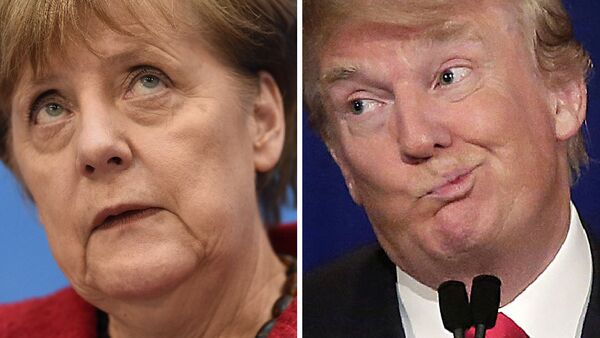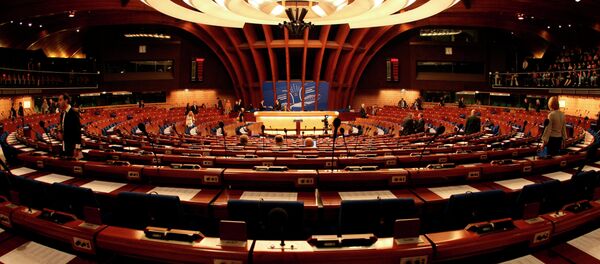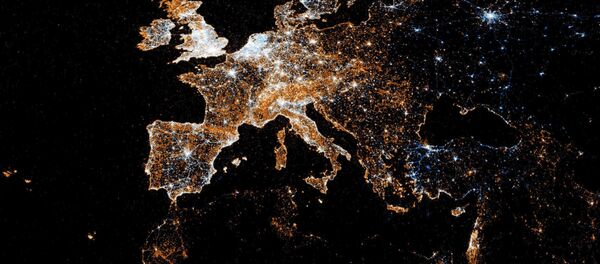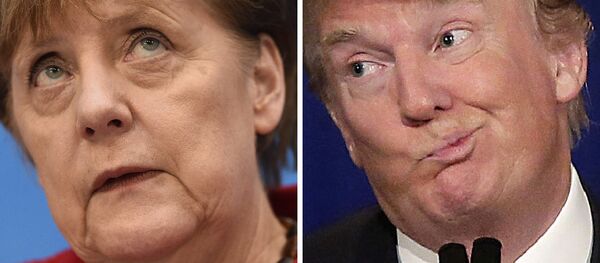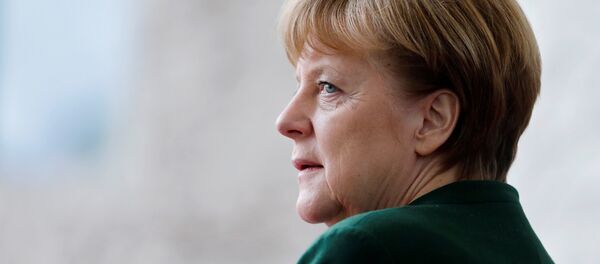WASHINGTON (Sputnik) — On Friday, a senior US administration official told reporters the two leaders would likely discuss relations with Russia when they meet on March 17.
The official said Trump was "very interested in hearing the chancellor’s views on her experience" with Russian President Vladimir Putin, with whom Merkel has been interacting for over a decade.
RELATIONS WITH RUSSIA AND THE ISSUE OF UKRAINE
Prior to Trump's inauguration on January 20, German media said Merkel was concerned over Trump's apparent intentions to normalize US-Russian relations as well as his attitude toward NATO.
German-Russian relations have been under pressure over the situation in Ukraine, but officials in both nations have lately indicated there could be a thaw ahead.
Merkel said in November that she did not rule out the possibility of Russian-backed hackers trying to interfere in the upcoming German elections, but Foreign Minister Sigmar Gabriel on Thursday pushed back against media reports that the country's foreign intelligence agency, BND, suspected Russian influence in European elections.
"German media are responsible for themselves," Gabriel said in a press conference in Moscow. "The federal government does not bring these charges."
During his two-day trip to Moscow, which included a meeting with Putin, Gabriel said he hoped Merkel would soon have the opportunity to visit Russia.
Merkel and Putin have additionally maintained contact over the situation in the Donbas region. On February 7, Merkel asked Putin to influence the self-proclaimed Donetsk and Luhansk people's republics in eastern Ukraine to restore a ceasefire in the region.
Gabriel also said Berlin expects the United States to use its influence to facilitate implementation of the Minsk agreements and settle the conflict in Ukraine.
The senior official noted on Friday that Trump is still learning about the dynamics of the Ukrainian conflict and has not made any particular decisions regarding the US future strategy in the region so far.
"I can't prejudge what the level and pace of US engagement will be on that issue. But the president is going to be interested in soliciting the chancellor's view on how the process is going," the official told reporters.
Trump and Merkel will likely discuss the future US role in finding a diplomatic solution to the conflict in Ukraine, the official added.
The official stressed that Trump's meeting with Merkel would be a "key discussion" to the president's understanding of the situation.
EU AND NATO RELATIONS
Merkel has also been the public face of Europe's relations with Turkey, a NATO ally, in recent months.
The prospect of Turkey's inclusion in the European Union and the EU-Turkish refugee deal have been damaged amid deteriorating relations between Berlin and Ankara.
Last week, German authorities withdrew permission for Turkish Justice Minister Bekir Bozdag to address local Turkish citizens ahead of a referendum in Turkey to dramatically expand President Recep Tayyip Erdogan's powers.
Erdogan lashed out at the ban, saying Germany's activities were "no different to those of the Nazi period." Merkel's office called the comments uncalled-for and unjustifiable.
In February, Merkel said that Germany would remain committed to the increase in defense spending up to 2 percent GDP by 2024, but pointed out the comparable importance of aid and development.
White House spokesman Sean Spicer characterized the comments as positive.
"I saw Chancellor Merkel's comments… noting that they understand the US is asking for that commitment," Spicer told reporters in a press briefing. "I think we've had a very positive reaction from most of these NATO countries that understand the financial commitment they agreed to is something that they need to live up to."
Germany hosts the largest deployment of US forces in Europe, with around 35,000 US soldiers stationed at German military bases.
Germany is a member of the US-led coalition against Daesh and has contributed troops to the coalition’s advise-and-assist missions in support of local fighters.
Additionally, German fighter jets have carried out reconnaissance missions in support of the coalition and Berlin funds the Kurdish Peshmerga in Iraq.
ADVANCING TRADE AND COMBATTING TERRORISM
Trump personally has frosty relations with Merkel, who he once said was ruining Germany, but he told Axios.com prior to his inauguration that he would give all world leaders a fresh start.
Despite their differences, Merkel stressed in February that it is in Germany's vital interest to have good transatlantic relations, including trade deals.
The fate of the proposed US-EU Transatlantic Trade and Investment Partnership (TTIP) is uncertain because Trump is a strong supporter of bilateral trade agreements vs. free trade area ones.
In addition to trade, the two leaders are likely to discuss terrorism and immigration, particularly refugees. In January, Merkel criticized Trump's executive order temporarily banning nationals from seven predominantly Muslim nations from entering the United States and suspending all refugee admissions for 120 days.
Last week, German intelligence chief Hans-Georg Maassen said the Federal Office for Protection of the Constitution, Germany's intelligence agency, has been receiving an increasingly high number of tips about planned terror plots.
During Merkel's US trip, German police and military personnel will conduct their first joint anti-terror drill in several cities across Germany.
In announcing the three-day drills, the Interior Ministry said the operation, called GETEX, was prompted in part by the ramming attack at a Christmas market in Berlin last December.
Daesh claimed responsibility for the attack, which killed 12 people and injured 48 others.
